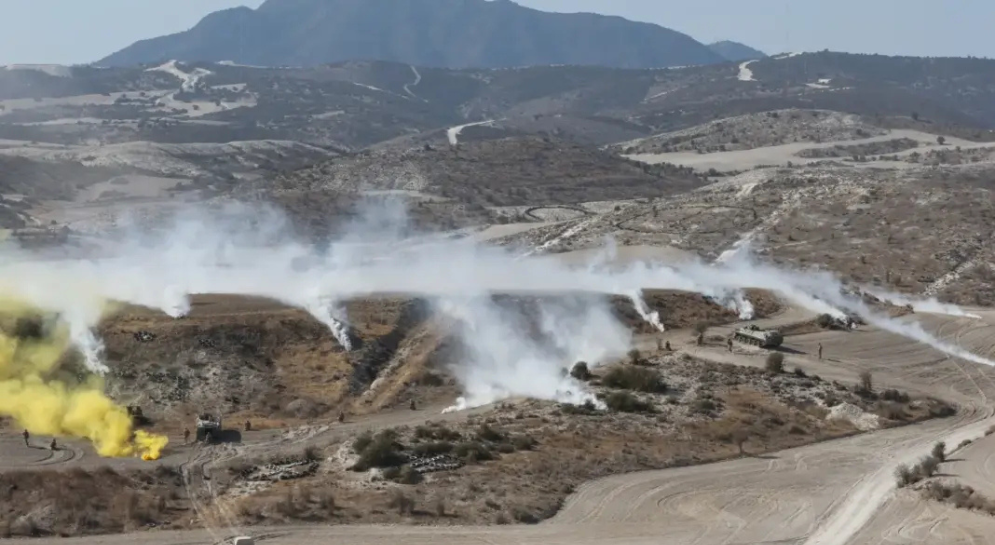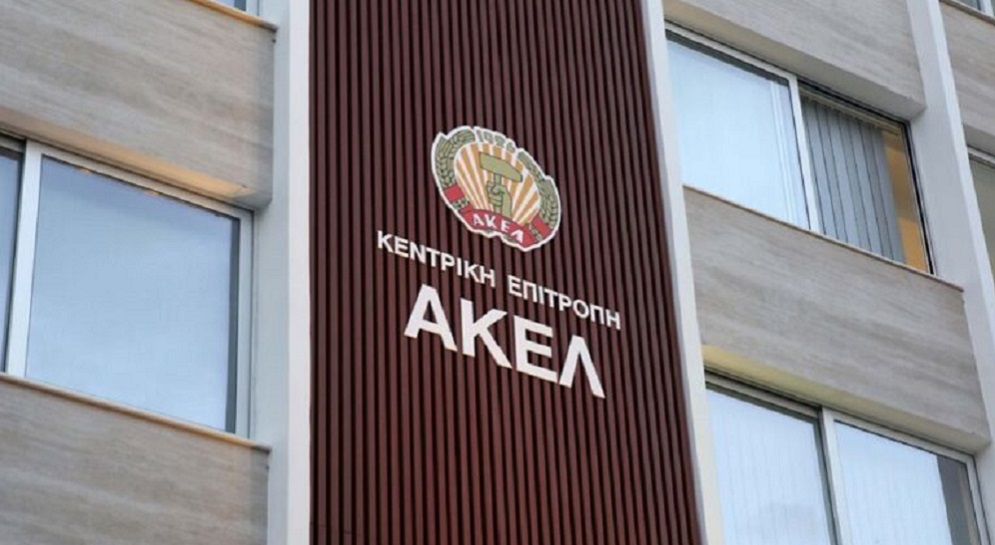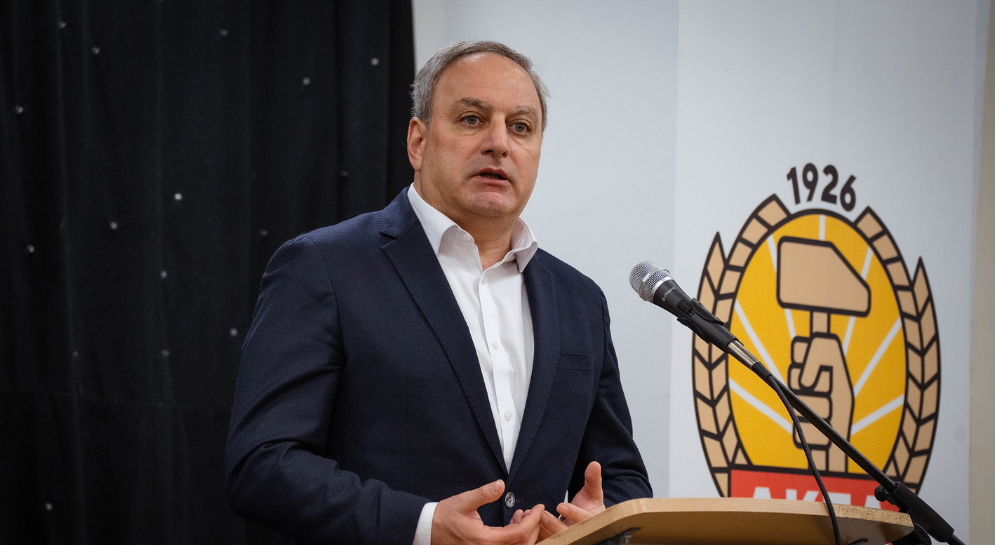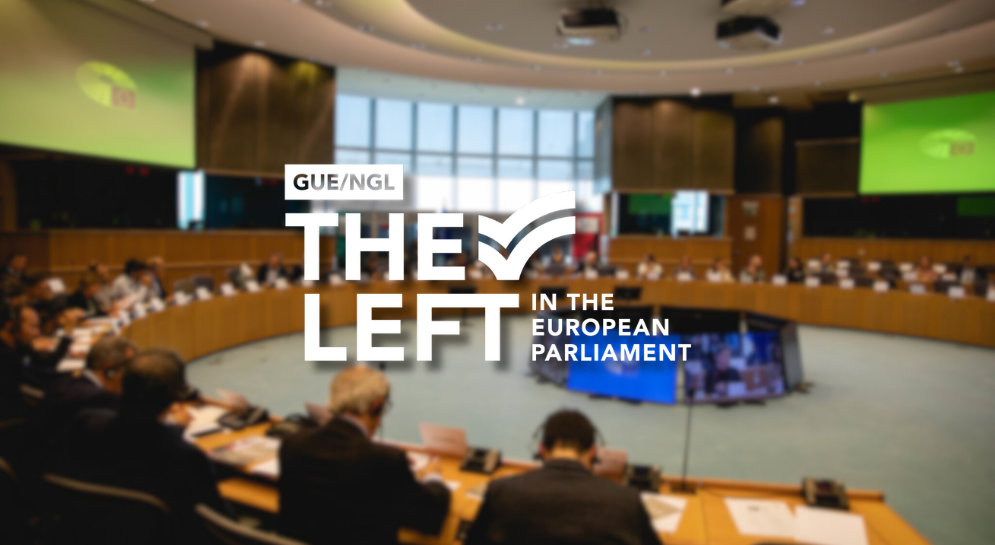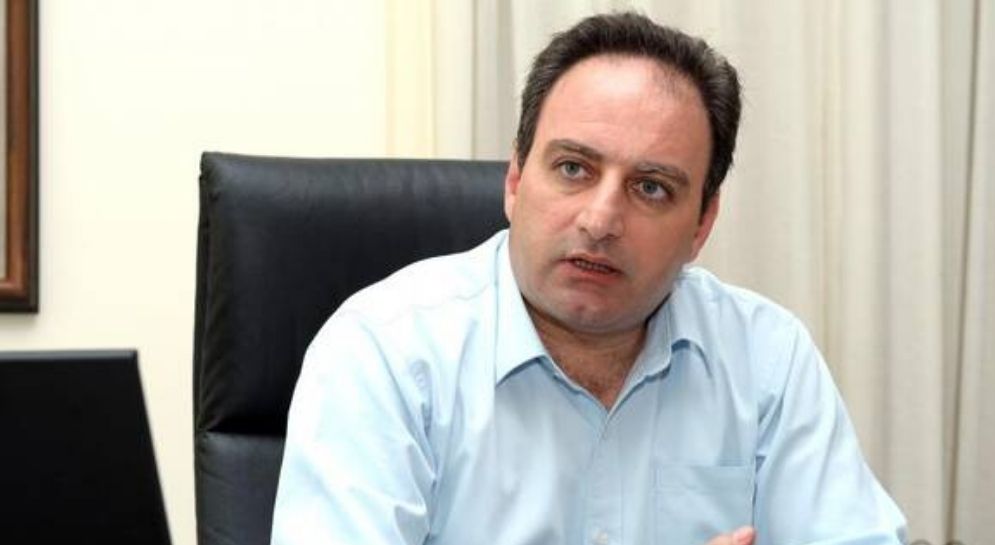
Interview with the General Secretary of AKEL Stefanos Stefanou: We envision an AKEL that will open new paths and inspire
11th July 2021, ‘HARAVGI’ newspaper
“AKEL has never been an introvert party, confined to its own shell. It was precisely its identity and its DNA that drove it to open doors, to be wherever the majority of society lives, breathes, works, struggles, dreams and aspires. The challenge is to convince the people that we are the hope of all those who are concerned about the country’s present and future.”
Q: Three days of debate at the 23rd Congress on the future of AKEL and the pioneering role it is called upon to regain. How heavy do you feel the responsibility you are taking on as the new General Secretary in this mission?
SS: It is a great honor both for myself and Party’s collective leadership, but also a heavy responsibility to manage to live up to the trust shown in me by the Congress and the new Central Committee, but also to meet the expectations of the people of AKEL.
Q: “AKEL should not get trapped in obsessions, but should articulate a new discourse, which will draw on its long experience and its ideology.” Excerpts from your speech as the new General Secretary from the podium of the 23rd Congress. Was it a message to political opponents, an element of self-criticism or something else?
SS: The Congress was preceded by a frank public dialogue on what AKEL should do to overcome the difficult phase in which it finds itself. Congress itself also dealt with this issue.
At no time have AKEL’s messages ever pointed in a single direction. After all, what AKEL has to say concerns Cyprus and society as a whole.
For that reason, the message is that AKEL has never been a party that is introvert, confined to its own shell. It was precisely its identity, its DNA that drove it to open doors, to be where the majority of society lives, breathes, works, struggles, dreams and aspires. That was what made AKEL a big force respected by friends and opponents alike.
The challenge for us now is to become once again the protagonists in the fields that shape progress and to convince the people that AKEL continues to be the force the people of labour, intellectual and mental labour, of young people and of all those who want to change things, can rely on. The challenge is to convince the people that we are the hope of all those who are concerned about the country today and its future.
Q: During the pre-Congress dialogue and at the Congress itself there was a lot of discussion about the party’s contacts with the people. What form does this contact take and what is its content?
SS: We want to talk to people, especially young people, within the Movement, but also with those who, although professing to be left, do not trust the Left. We want to listen to them and identify common demands, common objectives and ways of working together, to achieve goals together and to take AKEL where it deserves to be.
We want to make our antennae more sensitive to social movements, to society at large so that we can develop a meaningful and interactive relationship, to listen, to take in the messages being conveyed and to react effectively. The overwhelming majority of society should feel that we are on their side, with them in their struggles and efforts for a progressive change in the country, for a better future for our Cyprus.
Q: What stands out from the congratulations and good wishes you have received as the new General Secretary of AKEL?
SS: The fact that everyone, even people who do not belong to AKEL, are united in a common understanding and expectation: that Cyprus and Cypriots need a strong AKEL.
Q: What is your first priority in terms of the Party’s reorganisation?
SS: The election result showed that we didn’t convince that part of society which we address seeking to win their support at the ballot box. This means that we have to look at what went wrong. We reflected on this before and during our Congress.
Many contributions and thoughts were put forward which can be used to revitalise our work and intervention in society.
We want AKEL to intervene more quickly, more promptly, more convincingly to protect working people, small and medium-sized businesses, farmers, young people, the popular strata and the whole of society from the anti-social policies being imposed.
We want to continue to pave the way for the future of Cyprus with our positions and proposals.
Q: And what is AKEL’s first assertion, both inside and outside Parliament?
Both in and out of the House of Representatives we shall seek to provide relief for the majority of society suffering from the consequences of the crisis created by the pandemic. We shall seek to elaborate a concrete package of proposals for the day after the pandemic and to make it accepted by society, but also to promote it through Parliament.
We want to make our antennae more sensitive to social movements, to society at large, so that we can develop a meaningful and interactive relationship, to listen to the messages being sent and to react effectively.
We have already submitted proposals to the government for support to be provided to workers and small family businesses, for the creation of basic welfare and health infrastructures, the combatting of climate change and proposals aiming at addressing income and social inequalities
Q: The goal of progressive change in the country is – do you think – the first challenge you are called upon to win as AKEL and the new leadership?
SS: The goal for progressive change is one of our priorities.
Long before the Presidential Elections we shall have the Municipal Elections and it goes without saying that we will seek to fulfill the electoral objectives we will set. The Left has a long tradition in local government, it has made a major contribution to the development of the institution for the benefit of society. We have a stake in winning the elections and strengthening our presence, which we will translate into a contribution to serve citizen’s interests.
As far as the big picture is concerned, the challenge for us as AKEL is to regain the confidence of that section of the people of the Left which, for various reasons, we have lost in recent years. We must prove that the Left can renew itself, find new paths, open up new roads and inspire. This is the AKEL we envision and we shall work for such an AKEL with all our strengths, with an open mind and an open heart.
Q: What else can AKEL, together with the progressive forces of the Turkish Cypriot community, do to prevent the partition of Cyprus? The most pressing issue now is Famagusta. What’s your comment on the developments?
SS: It is well known that AKEL has submitted a comprehensive proposal with suggestions on how the dialogue for the solution of the Cyprus problem can be resumed. We have of course also briefed the progressive forces of the Turkish Cypriot community about our proposal.
From there onwards, AKEL is constantly undertaking initiatives of both a small and large scope for the development of joint actions with our Turkish Cypriot compatriots, with the aim always of strengthening the voice of the Cypriot people, who is demanding liberation, peace and reunification.
Q: The Government refers to the Recovery Fund as the solution to all the problems caused by the pandemic. What is AKEL’s view and what are its own proposals on the Recovery Fund?
SS: The Recovery Fund is a tool, but it is not in itself sufficient to solve the problems accumulated both by the pandemic and the economic policy pursued by the government all through the previous period. What matters more is how it is used, in what direction and who it should provide support to. We don’t have high expectations about the Fund because we are aware of what the government’s priorities have been so far. The government ruling forces are not concerned about the majority of society and have shown this on many occasions.
We insist on the need for transparency and accountability, and we have already submitted specific proposals to the government for support to be provided to working people and small family businesses, for the creation of basic welfare and health infrastructures, the combatting of climate change, and income and social inequalities.
And of course we must not forget that this process also has a financial cost as well, given that the Fund has increased the contributions of member states towards the EU. Therefore, the net financial revenues from the EU will be much less than what is being presented.
Q: What else do you think needs to be done to alleviate the section of society affected by the health crisis?
SS: First of all, I want to make it clear that our assessment is that a large part of small businesses, but also of working people, have not returned to “normality”, despite the image that the government is so diligently cultivating. All the more so since the climate of uncertainty and insecurity is growing for a large number of them. This is precisely why the need for financial assistance from the State to these people remains. Either through the provision of direct support or through schemes to support wages.
At the same time, important issues relating to the viability, particularly of small family businesses, continue to be pending, and are related to the issue of rents and evictions. Proposals have been tabled, and we have taken legislative initiatives as a Party towards this end, but all of this is coming up against the government’s dogmatism and its refusal to provide substantive solutions.
The second point I would like to make has to do with planning. The narrative being promoted with regards the government’s supposed better management of the pandemic across the EU has collapsed. And this has had a significant impact on the country’s economic development.
Take tourism, for example, which constitutes a key pillar of the Cyprus economy. The government hasn’t done what it should have. For another year the government will fall short of the goals it has set. It should have been much more decisive in order to protect the sector of tourism. Cyprus isn’t the only country facing the pandemic, but Cyprus is performing worse than other countries in the region with similar characteristics.

